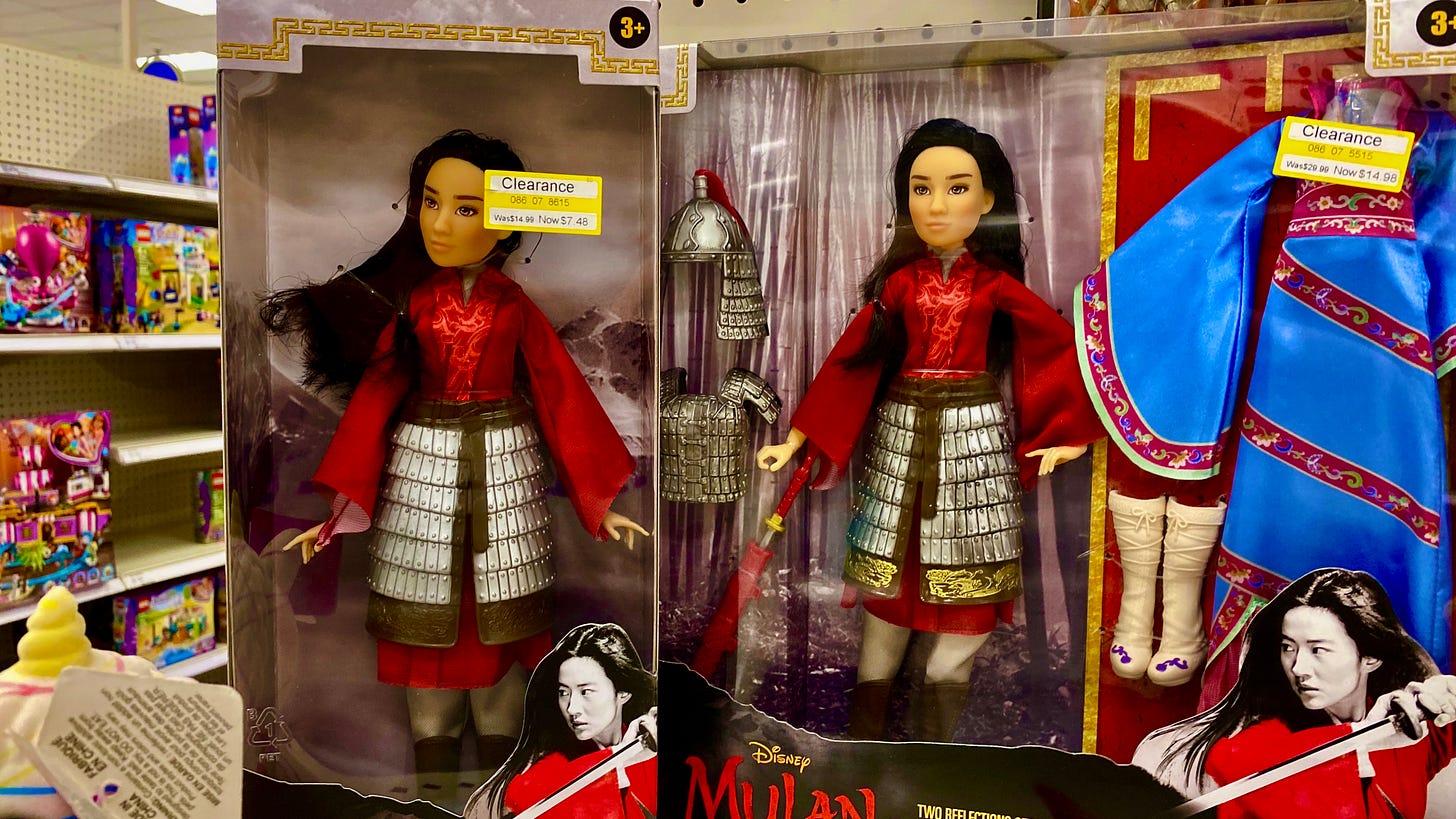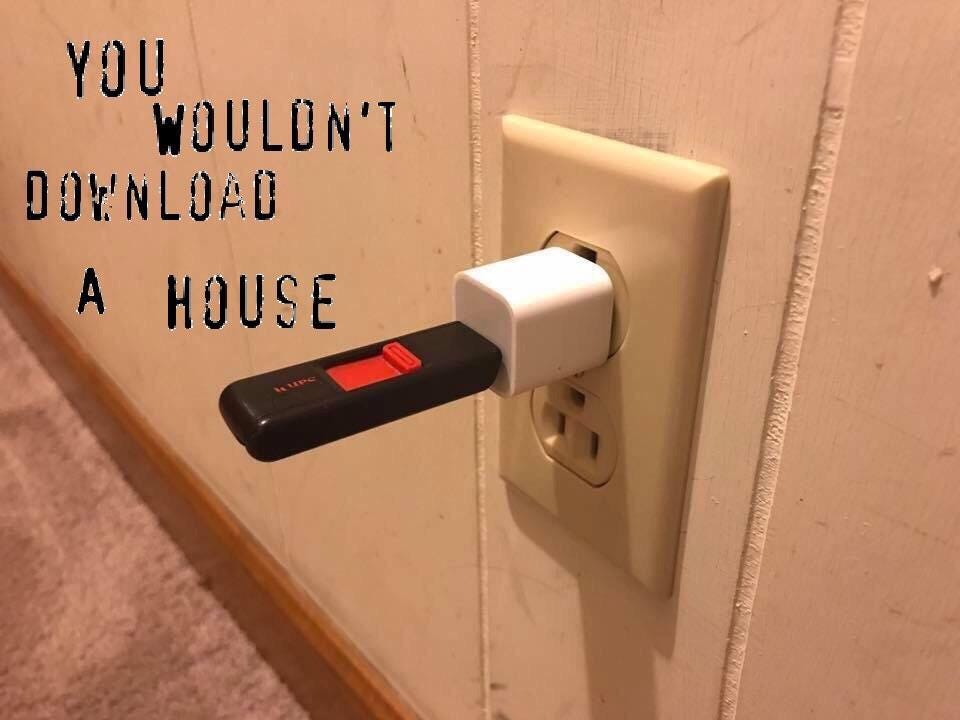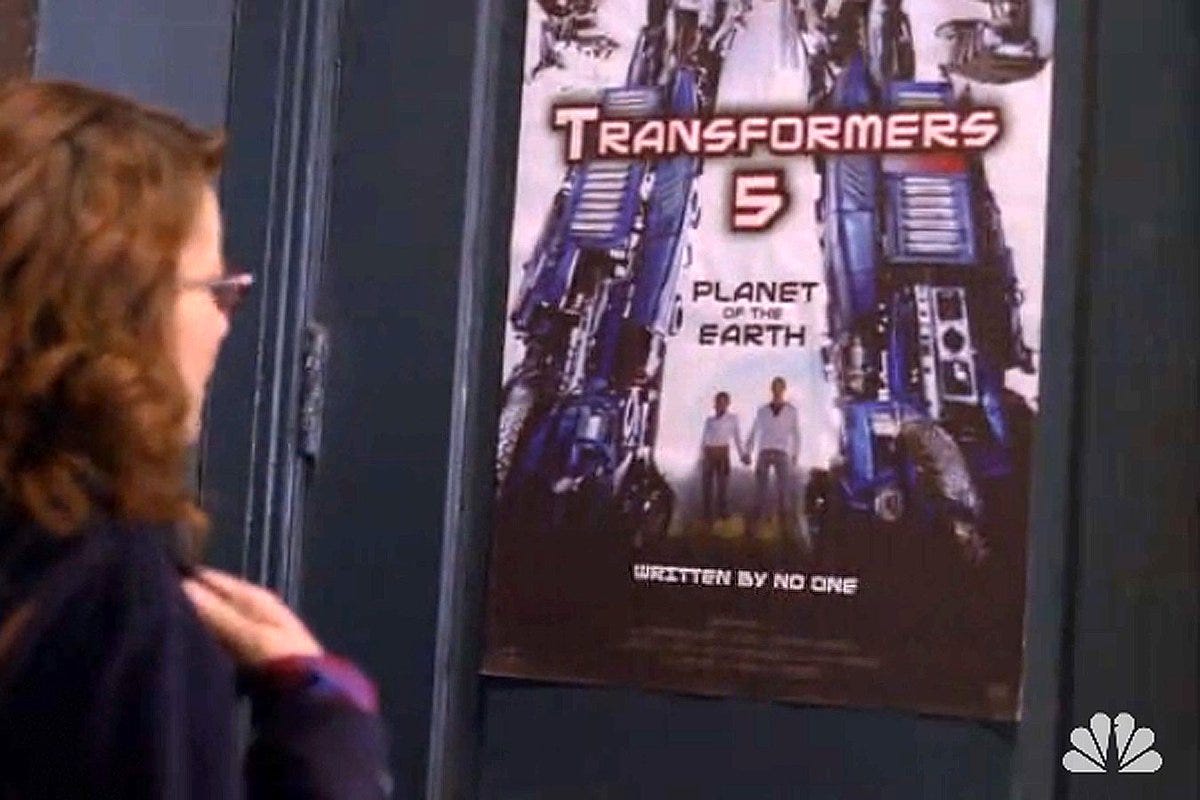The real issue with Disney+ charging $30 for Mulan has to do with the Government & Fortnite lmao
Big tech, major studios, and movie theater chains are all working against you, which isn't news, but it's getting way too sneaky. The government is helping, too.
It’s hard to adequately care about movies or movie theaters dying when about 1000 Americans are dying every day of COVID-19. Theaters have been on the decline for years, with price inflation and better home entertainment options making trips to the movies harder to justify. That’s led to major studio event films, 40% of which are from Disney, becoming the only actual draw for crowds, except for a few.
Christopher Nolan’s much-anticipated 70mm film-shot blockbuster Tenet is playing in IMAX right now 15 minutes from me. Cinema is not dead yet, and neither am I. While I want to see it very badly and reviews are pouring in (I really don’t like FOMO) like I said, about 1000 Americans are dying every day because of people prioritizing their personal desires and FOMO over collective need. I’m not going to pretend to know all the details and livelihoods at stake for Tenet’s release or shame patrons for doing something fun but risky, and maybe IMAX theaters won’t be a thing in 2021. Still, I can also internalize the newfound peace in not giving a single shit.
Don’t you just love the free market?
Independent cinema and comedies, or most movies that don’t necessitate 3D glasses and the most massive screen possible, were the first to go streaming. They’ve more or less found new homes in services like Netflix, Hulu (owned by Disney), Amazon Prime, etc. Is this ultimately good for the movie or experience? Who’s to say. If you like a video when you watch it however you watched it, who cares? Who cares if Mulan is available on Disney+ for $30? Are you a parent with children begging to see Mulan? Based on my demographic analytics, that’s unlikely. You’re more likely just a nerd.
It looks like this cringy movie theater employee cares, though, and you should too.
“Scorsese fired the first shot” in that tweet caption probably was meant about Martin Scorsese claiming Marvel superhero movies ‘aren’t cinema.’ It could equally refer to Scorsese producing and releasing his three-and-a-half-hour mobster epic The Irishman through Netflix. If Irishman got Oscar attention and a Criterion Collection physical release, does it matter that most theaters didn’t get to play it?
Speaking of playing, Fortnite creator Epic Games and Apple are full-on at war right now. Apple charges a 30% fee on all in-app transactions on their devices. It’s why you can’t buy Audible credits on your iPhone or subscribe to Spotify without a computer or web browser. Many believe this fee is too high given the market share Apple holds on people’s devices.
I’m not gonna take a side because I’m trying to make rent and can’t care, but I do appreciate that Apple over Google is tight on their device security and user privacy. This is a story to keep an eye on, though, as it will likely affect e-commerce forever.
Since Quarantine began in March, studios and theaters have been scrambling to come up with solutions to all this. Universal Studios fired the first shot by releasing Trolls: World Tour as a $20 rental the same day it was meant to hit theaters. They then said that it would be policy permanently; whenever a Universal Studios movie hits theaters, it will be available to rent the same day (this has now been extended to 14 days after they and AMC made a deal).
The same studio was behind The King of Staten Island, which is one of the few 2020 movies I wrote about, but my piece was mostly about its release model and how I was not too fond of it even though I liked the film itself.
Clearly, The King of Staten Island was meant for theaters, and it's a bummer because comedies are fun to watch with groups of people. But like, even with it hitting VOD, there are still unnecessary hurdles to watch this movie akin to getting dressed and getting in your car to go to the theater. You have to pick *this movie* out of *the entirety of internet, art, and media*, pay the equivalent of *two months of Netflix* to see it as many times as you want for two days, and then either wait for it to hit a streaming service you might already pay for or wait for the opportunity to pay a similar amount to arbitrarily own it in some cloud service that reserves the right to take away that license at any time.
If that sounds stupid, it's because it is, but it might be the future of cinema. Absolutely nobody is going to rent a digital copy of The King of Staten Island a second time the way somebody would pay to see Pineapple Express twice in a movie theater. Heck, I'm only renting it right now at $20 because there's currently a scarcity of new films in 2020, and I'm sure many others will. I wanted to type all that out to underscore the fact that this isn't a sustainable norm, even and especially for the demographic of a film like this. If you have 3 kids, you can justify a $20 children's film rental better because that's way cheaper than a trip to the movies, whereas $20 is an expensive solo movie ticket, and y'know I cannot really blame you if you don't feel like taking the 2 hour and 17-minute break from YouTube and video games necessary to see The King of Staten Island, and even as someone who enjoyed the movie, I can't really muster up a reason to see this film with any sense of urgency.
Just in case you’re normal and don’t care about these things; let’s recap how someone watches and possesses movies in 2020:
You own the movie on a disc. For some reason, we still manufacture DVDs, Blu-Rays, and UltraHD 4K Blu-Rays. Maybe it’s a good reason. You pay between $20-$30 for a disc you keep forever, and they usually include a digital copy, which you could import into…
Video On Demand services. This is iTunes (now basically Apple TV+), Google Play, VUDU, Amazon Prime Video, friggin FandangoNow whatever that is… these are services that sell you digital licenses of movies they themselves do not own. Sometimes they’re $20 but can be as low as like, $5, and you keep the film so long as that digital service retains the right to license you that movie.
To compete with Netflix which accounts for 15% of all internet traffic (all of YouTube is ~ 7%), some of these VOD services will have free streaming content (or ‘free’ in the sense that it comes with your yearly Amazon Prime taxes—I mean, subscription). This is why you see movies for sale/rent alongside films you can stream for free.
If it’s not original content, the streaming service doesn’t own it. HBO Max, which is owned by TimeWarner/Warner Bros., can’t even keep its own content like Batman or Harry Potter on their service because it’s getting licensed out to more profitable platforms.
Original Streaming Content. This is the big kahuna right now, obviously, with Netflix Originals and Amazon Studios being the most prominent players in this. They make and acquire new movies and TV shows that get small if any theatrical run, no physical discs, and no other legal way to purchase or own the content unless you’re a current subscriber.
Amazon will indeed sell & mail you a plastic disc of their movies in eco-unfriendly packaging should you order one, however.
Apple is getting into this game actively with Apple TV+. Huge names are making original content that can only be viewed there. You can’t even purchase their movies or TV shows on their iTunes storefront. You either need to pay $5.99 a month or buy a new Apple device and get a year of the service free. Otherwise, you have no way of watching.
ENTER: DISNEY+
Disney is no stranger to vaulting and locking out access to their movies. This was a regular practice of theirs in the physical world for a long time. They’ve even taken part in hostage situations where they’ll remove, say, The Lion King (1994) from iTunes in negotiations with Apple, halting sales and deleting it from everyone’s cloud library who paid for the film whenever they did until the giants stop crying.
For a while, you couldn’t get Disney movies on blu-ray from Amazon.
Now that D+ is a huge success, as of a few weeks ago, they’re potentially getting out of the 4K Blu-Ray game altogether. What kind of power do you think they have over the knee-capped movie theater industry? What if you can no longer watch Disney movies in 4K without a Disney+ subscription?
These are the terms set for Mulan (2020). In place of a theatrical run, Mulan will be a Disney+ exclusive for a one-time $30 additional charge (about a third of a yearly subscription). It will appear like Hamilton or Artemis Fowl (which were also new, but free) in the Disney+ library, and it’s yours to stream…so long as you’re a Disney+ subscriber. Maybe you see the issue here already.
It’s somehow a worse deal than The King of Staten Island, which by the way, is available for $20 on Blu-ray now. What’s a 30% price hike on a $20 rental anyway? What’s $7.99 a month times the rest of my life?
Disney is creating a new normal in merging studio with distributor. While Spotify and Epic Games publicly squabble with Apple over their 30% distributor/maintenance tax, Disney knows damn well all they have to do is charge customers the difference upfront. Thus, creating a new consumer habit where instead of digging through a Blockbuster or digital storefront for movies, it’s a device-agnostic home for all your Disney needs.
As far as the future of theaters goes, it’s pretty much entirely in Disney’s hands now. AMC, Regal, Landmark Cinemas are all verging bankruptcy, and convincing customers back right now is a tough, potentially deadly sale.
It gets worse, though.
Anti-trust laws in the United States are deteriorating in front of us. A law from the 1940s that has prevented studios from directly being their own competition-crushing distributors called the Paramount Consent Decrees was terminated earlier this month with federal judge Analisa Torres siding with Trump’s Justice Department in a ruling, saying:
“None of the internet streaming companies—Netflix, Amazon, Apple and others—that produce and distribute movies are subject to the Decrees,” she wrote. “Thus, the remaining Defendants [traditional studios] are subject to legal constraints that do not apply to their competitors.” She wrote that distributors who were not subject to the decrees have “shown no propensity to acquire major movie theater circuits or engage in the type of collusive practices the Decrees targeted.”
Uhm, ok, boomer.
I probably won’t go to court over all this because there are so many other things to care about, but when you spot me at Amazon Theatres seeing Transformers 5: Planet of the Earth written by no one, don’t blame me or say I didn’t warn ya. We’re in the free market, ba-by!
Anyways, this is one of the things making me depressed lately. Talk to you later.
Tyler Scruggs is a writer, musician, and millennial swashbuckler navigating the digital frontier through internet content like this and love songs for your Zune. He brews his own coffee now and doesn’t feel it’s safe enough to go to the movies as much as he might like.
Feel free to validate him on Twitter (@TylerScruggs), Instagram (@Scruggernaut), and YouTube.
If you’d like to directly and meaningfully support the continuation of my writing and work, consider subscribing to unlock more journalism, music demos, interviews, and more.








